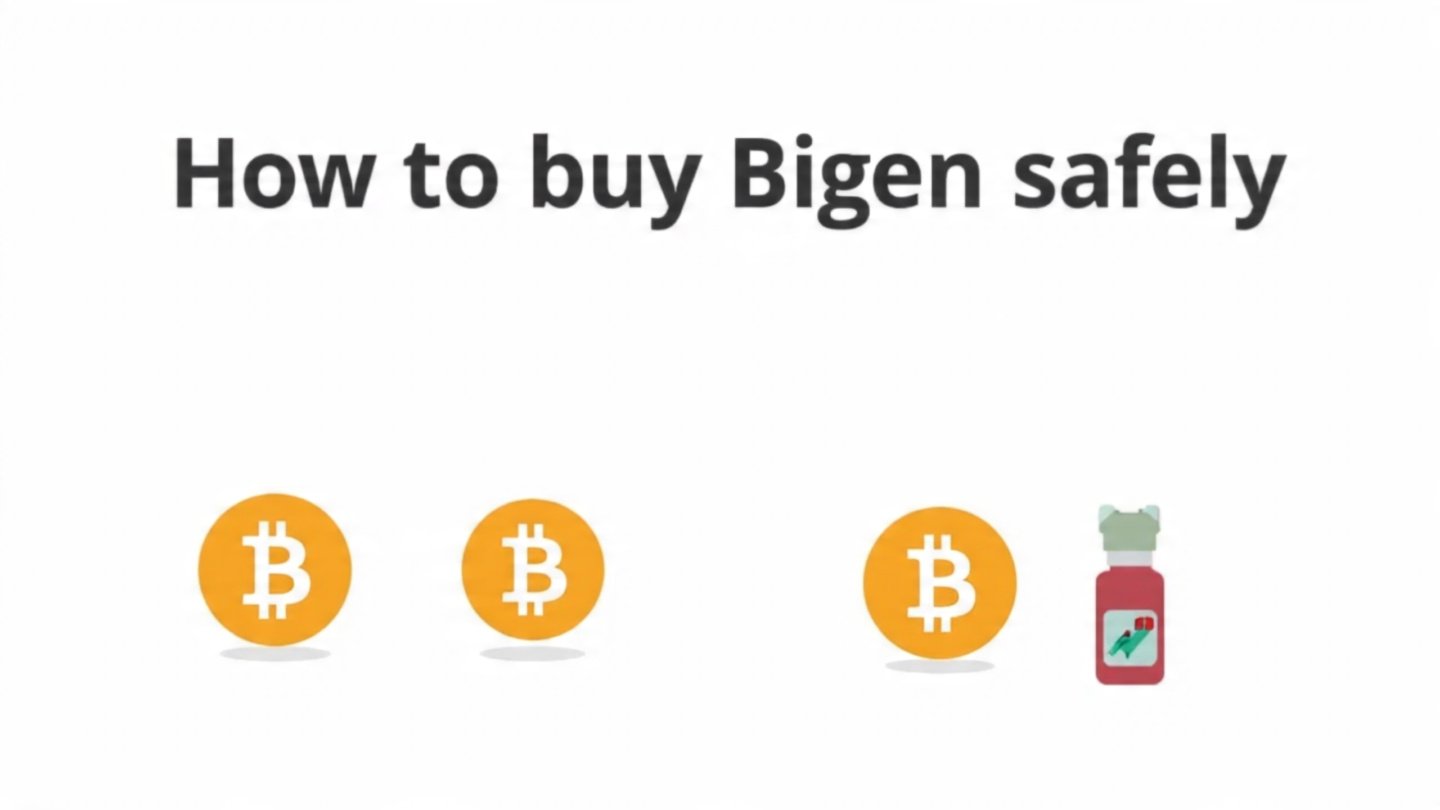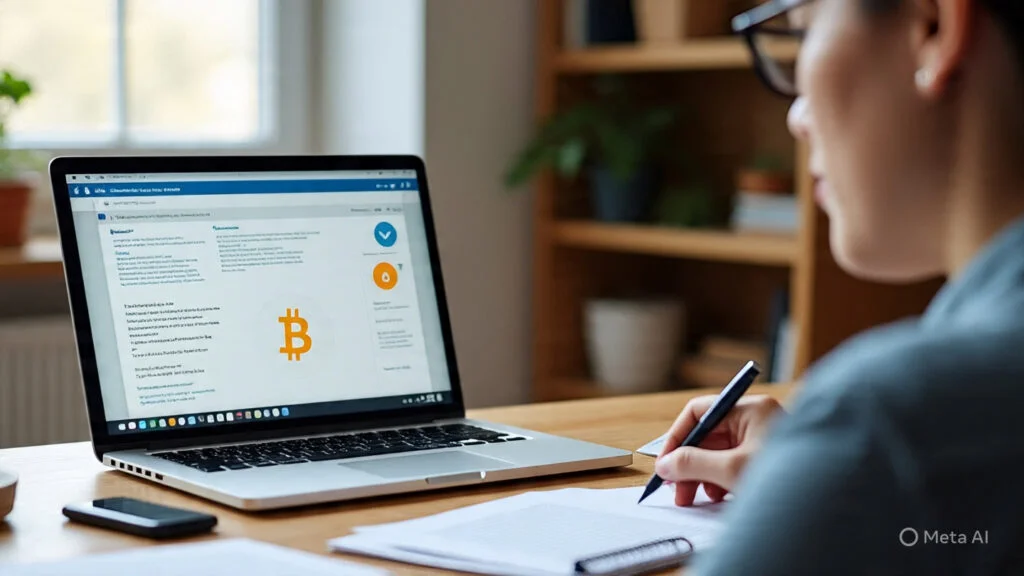Learning how to buy Bitcoin safely for beginners can feel overwhelming in today’s complex cryptocurrency landscape. With Bitcoin reaching new heights and mainstream adoption growing rapidly, millions of newcomers are eager to join the digital currency revolution. However, the crypto space is filled with potential pitfalls, scams, and security risks that can cost inexperienced investors thousands of dollars.
This comprehensive guide will walk you through every step of purchasing Bitcoin securely, from choosing the right platform to implementing robust security measures. Whether you’re looking to make your first $50 Bitcoin purchase or planning a larger investment, understanding the fundamentals of safe Bitcoin buying is crucial for protecting your digital assets and ensuring a positive cryptocurrency experience.
By the end of this article, you’ll have all the knowledge needed to confidently navigate the Bitcoin buying process while avoiding common mistakes that plague new investors.
Bitcoin Basics Before You Buy
Before diving into the purchasing process, it’s essential to grasp what Bitcoin actually is and why security matters so much in the cryptocurrency world. Bitcoin is a decentralized digital currency that operates on a peer-to-peer network, meaning no central authority controls it. This revolutionary technology offers financial freedom but also places complete responsibility for security in your hands.
Unlike traditional banking where institutions protect your money, Bitcoin transactions are irreversible. Once you send Bitcoin to the wrong address or fall victim to a scam, recovering your funds is nearly impossible. This reality makes learning how to buy Bitcoin safely for beginners absolutely critical before making any financial commitments.
The cryptocurrency market operates 24/7, experiences high volatility, and attracts both legitimate businesses and malicious actors. Understanding these characteristics helps you make informed decisions and recognize potential red flags during your Bitcoin buying journey.
How to Buy Bitcoin Safely for Beginners: Step-by-Step Process

Step 1: Choose a Reputable Bitcoin Exchange
Selecting the right platform is the most crucial decision when learning how to buy Bitcoin safely for beginners. Reputable exchanges implement strict security measures, comply with regulations, and offer customer support when issues arise. Research each platform thoroughly, checking for proper licensing, insurance coverage, and positive user reviews.
Major exchanges like Coinbase, Kraken, and Binance have established track records and serve millions of users worldwide. These platforms offer user-friendly interfaces specifically designed for newcomers, making the buying process straightforward and secure. However, always verify the exchange’s security features, including two-factor authentication, cold storage for user funds, and regulatory compliance in your jurisdiction.
Avoid unknown or newly launched exchanges, especially those promising unrealistic returns or lacking proper documentation. Stick to well-established platforms that have weathered market downturns and maintained their reputation over several years.
Complete Identity Verification
All legitimate exchanges require identity verification to comply with anti-money laundering regulations. This process, known as Know Your Customer (KYC), involves submitting government-issued identification and sometimes additional documentation. While this step might seem tedious, it’s actually a positive sign that the exchange follows proper legal procedures.
Prepare documents such as a driver’s license, passport, or national ID card. Some exchanges may also request proof of address through utility bills or bank statements. The verification process typically takes 24-72 hours, so plan accordingly if you’re eager to make your first purchase.
Never use exchanges that don’t require verification or seem to bypass regulatory requirements. These platforms often operate illegally and put your funds at significant risk.
Secure Your Account
Account security forms the foundation of safe Bitcoin buying. Enable two-factor authentication immediately after creating your account, using an authenticator app rather than SMS when possible. Create a unique, complex password that you don’t use for any other online accounts.
Review all account settings and ensure your email address is correct and secure. Many exchanges offer additional security features like withdrawal whitelisting, which only allows Bitcoin transfers to pre-approved addresses. Enable these features even if they seem unnecessary initially.
Consider using a dedicated email address specifically for cryptocurrency activities. This approach helps isolate your crypto accounts from other online activities and makes monitoring for suspicious activity easier.
Best Platforms for Safe Bitcoin Purchases
Coinbase: The Beginner’s Choice
Coinbase stands out as the most beginner-friendly platform for learning how to buy Bitcoin safely for beginners. The exchange offers an intuitive interface, educational resources, and strong customer support. Coinbase is publicly traded, regulated in multiple jurisdictions, and insures customer funds against security breaches.
The platform charges slightly higher fees than some competitors, but the added security and ease of use justify the cost for most beginners. Coinbase also offers Coinbase Pro for more advanced trading features once you gain experience.
Kraken: Security-Focused Excellence
Kraken has never been successfully hacked in its decade-plus operating history, making it an excellent choice for security-conscious beginners. The exchange offers competitive fees, advanced security features, and excellent customer support through multiple channels.
While Kraken’s interface is slightly more complex than Coinbase, it provides more trading options and lower fees. The platform also offers educational resources and market analysis to help beginners make informed decisions.
Cash App: Mobile Simplicity
For beginners who prefer mobile-first experiences, Cash App offers a simple Bitcoin buying process integrated with other financial services. The app allows users to buy Bitcoin with just a few taps, making it ideal for small, regular purchases.
However, Cash App has limited advanced features and higher fees for larger transactions. It’s best suited for beginners making small Bitcoin purchases rather than significant investments.
Bitcoin Security Best Practices for New Investors
Understanding Private Keys and Wallets
Every Bitcoin transaction requires private keys, which are essentially the passwords to your cryptocurrency. When you buy Bitcoin on an exchange, the platform initially holds these keys for you. However, truly secure Bitcoin ownership means controlling your own private keys through personal wallets.
There are several types of wallets, each with different security levels and convenience factors. Hot wallets stay connected to the internet and offer easy access but increased security risks. Cold wallets remain offline and provide maximum security but less convenience for frequent transactions.
For beginners, starting with the exchange’s built-in wallet is acceptable for small amounts. As your Bitcoin holdings grow, transitioning to a hardware wallet becomes increasingly important for long-term security.
Implementing Multi-Layer Security
Security isn’t a single action but a comprehensive approach involving multiple protective measures. Use unique passwords for all cryptocurrency-related accounts, enable two-factor authentication everywhere possible, and regularly update your security software.
Keep your computer and mobile devices updated with the latest security patches. Avoid accessing cryptocurrency accounts on public Wi-Fi networks or shared computers. Consider using a dedicated device or browser specifically for cryptocurrency activities.
Create secure backups of all important information, including recovery phrases and private keys. Store these backups in multiple secure locations, preferably offline and in different physical locations.
Avoiding Common Bitcoin Buying Mistakes
Falling for Get-Rich-Quick Schemes
The cryptocurrency space attracts numerous scams promising unrealistic returns or guaranteed profits. Legitimate Bitcoin purchasing involves buying the actual cryptocurrency on regulated exchanges, not participating in pyramid schemes or “doubling” programs.
Be extremely wary of social media advertisements, unsolicited emails, or messages promising extraordinary Bitcoin returns. Remember that if something sounds too good to be true, it almost certainly is. Stick to established exchanges and avoid any platform that guarantees profits or requires recruiting other users.
Research thoroughly before sending money to any platform or individual. Check reviews, verify licensing, and ensure the service has a legitimate business address and customer support channels.
Ignoring Transaction Fees
Transaction fees can significantly impact small Bitcoin purchases, so understanding fee structures is crucial when learning how to buy Bitcoin safely for beginners. Exchanges charge various fees including trading fees, deposit fees, withdrawal fees, and spread costs.
Compare fee structures across multiple platforms, especially if you plan to make regular purchases. Some exchanges offer reduced fees for higher-volume traders or users who hold the platform’s native tokens.
Consider the total cost of ownership, including ongoing storage fees for keeping Bitcoin on the exchange versus transferring to your own wallet, which incurs network transaction fees.
Panic Buying and Selling
Bitcoin’s price volatility can trigger emotional responses leading to poor financial decisions. Avoid making purchase decisions based on fear of missing out (FOMO) or panic during market downturns. Develop a clear investment strategy and stick to it regardless of short-term price movements.
Consider dollar-cost averaging, which involves making regular Bitcoin purchases regardless of price. This strategy helps smooth out volatility and removes the pressure of timing the market perfectly.
Never invest more than you can afford to lose, and avoid using borrowed money or emergency funds for Bitcoin purchases. Cryptocurrency should represent only a small portion of a well-diversified investment portfolio.
Payment Methods and Their Security Implications
Bank Transfers: Maximum Security
Bank transfers offer the highest security level for Bitcoin purchases but may take several days to process. This method provides a clear paper trail and buyer protection through traditional banking regulations. Most major exchanges accept bank transfers and offer lower fees for this payment method.
Automated Clearing House (ACH) transfers are particularly popular in the United States, offering low fees and high security. Wire transfers process faster but cost more and may be overkill for smaller Bitcoin purchases.
Always verify the exchange’s banking information independently before initiating transfers. Scammers sometimes intercept communications and provide fraudulent banking details.
Credit and Debit Cards: Speed vs. Cost
Card payments offer immediate Bitcoin purchases but come with higher fees and additional risks. Credit card companies may treat Bitcoin purchases as cash advances, resulting in higher interest rates and additional fees.
Some banks block cryptocurrency-related transactions, so notify your financial institution before attempting card purchases. Consider the total cost including all fees when comparing card payments to other methods.
Debit cards generally offer lower fees than credit cards and avoid potential cash advance complications. However, they provide less buyer protection if issues arise with the transaction.
Digital Payment Services
Services like PayPal now offer Bitcoin purchasing options, providing familiar interfaces for users already comfortable with these platforms. However, these services often have limitations on withdrawing Bitcoin to external wallets.
PayPal’s Bitcoin service, for example, doesn’t allow users to transfer Bitcoin to other addresses, limiting your ability to truly own and control your cryptocurrency. Consider whether such restrictions align with your long-term Bitcoin goals.
These services might be suitable for beginners who want exposure to Bitcoin’s price movements without dealing with wallet management complexities.
Setting Up Your First Bitcoin Wallet
Hot Wallets for Beginners
Software wallets running on computers or mobile devices provide a good balance of security and convenience for beginners. Popular options include Electrum for desktop users and Blue Wallet for mobile devices. These wallets give you full control over your private keys while maintaining user-friendly interfaces.
When setting up any wallet, carefully write down and securely store the recovery phrase. This phrase can restore access to your Bitcoin if you lose your device or forget your password. Never store recovery phrases digitally or share them with anyone.
Test your wallet with small amounts before transferring larger sums. Send a small Bitcoin amount to your new wallet and practice sending it back to the exchange to ensure you understand the process.
Hardware Wallets for Long-Term Storage
Hardware wallets like Ledger or Trezor provide the highest security for Bitcoin storage by keeping private keys offline. These devices cost $50-200 but offer peace of mind for larger Bitcoin holdings.
Purchase hardware wallets directly from manufacturers or authorized retailers to avoid tampered devices. Never buy used hardware wallets or those sold through unofficial channels.
Set up your hardware wallet in a secure environment, preferably offline during initial configuration. Follow the manufacturer’s instructions carefully and verify the device’s authenticity using their provided methods.
Regulatory Considerations and Tax Implications
Understanding Legal Requirements
Bitcoin regulations vary significantly between countries and even individual states or provinces. Research your local laws regarding cryptocurrency purchases, holdings, and transactions. Some jurisdictions require registration for large transactions or impose restrictions on cryptocurrency activities.
Stay informed about changing regulations, as governments worldwide are actively developing cryptocurrency policies. What’s legal today might face new restrictions tomorrow, so maintaining compliance requires ongoing attention.
Consider consulting with legal professionals familiar with cryptocurrency law in your jurisdiction, especially if you plan significant Bitcoin investments or live in areas with complex regulatory environments.
Tax Planning for Bitcoin Purchases
Most tax jurisdictions treat Bitcoin as property rather than currency, creating tax implications for every transaction. Keep detailed records of all Bitcoin purchases, including dates, amounts, prices, and exchange fees.
Capital gains taxes may apply when you sell, trade, or spend Bitcoin. The tax treatment often depends on how long you hold the Bitcoin and your total income level. Some countries offer favorable treatment for long-term holdings versus short-term trading.
Use cryptocurrency tax software or consult with tax professionals experienced in digital assets. Proper record-keeping from the beginning saves significant time and money during tax season.
Advanced Security Measures for Bitcoin Safety
Multi-Signature Wallets
Multi-signature wallets require multiple private keys to authorize Bitcoin transactions, providing additional security layers. These wallets might require 2-of-3 or 3-of-5 signatures, meaning multiple people or devices must approve each transaction.
While complex for beginners, multi-sig wallets offer excellent security for larger Bitcoin holdings or shared accounts. Some services provide user-friendly multi-sig solutions that simplify the technical complexity.
Regular Security Audits
Periodically review all your cryptocurrency accounts, wallets, and security measures. Check for unauthorized access attempts, update passwords regularly, and ensure all security features remain enabled.
Monitor your email and phone accounts closely, as these often serve as recovery methods for cryptocurrency accounts. Secure these accounts with the same rigor you apply to your Bitcoin holdings.
Consider using a password manager to generate and store unique passwords for all cryptocurrency-related accounts. This approach prevents password reuse and makes managing multiple secure accounts more manageable.
Dollar-Cost Averaging Strategy for Beginners
Understanding DCA Benefits
Dollar-cost averaging involves making regular Bitcoin purchases regardless of price, reducing the impact of volatility on your overall investment. This strategy works particularly well for beginners learning how to buy Bitcoin safely for beginners because it removes the pressure of timing market entries perfectly.
Set up automatic purchases weekly or monthly, treating Bitcoin like a regular savings account contribution. This approach helps build discipline while gradually accumulating Bitcoin over time.
DCA strategies work best with long-term perspectives and consistent income sources. Avoid skipping purchases during market downturns, as these often provide the best buying opportunities.
Implementing Your DCA Plan
Choose a purchase amount you can comfortably afford every period without affecting your essential expenses or emergency fund. Start small and increase amounts gradually as you become more comfortable with Bitcoin ownership.
Select exchanges that support recurring purchases and offer reasonable fees for frequent transactions. Some platforms provide DCA-specific features that automate the entire process.
Track your average purchase price over time and resist the urge to modify your strategy based on short-term market movements. The power of DCA comes from consistency, not market timing.
Recognizing and Avoiding Bitcoin Scams
Common Scam Types
Phishing attacks targeting cryptocurrency users have become increasingly sophisticated, often mimicking legitimate exchange websites or mobile apps. Always verify URLs carefully and bookmark official exchange websites to avoid fraudulent copies.
Social engineering scams frequently target cryptocurrency owners through fake customer support contacts, fraudulent social media accounts, or impersonation attempts. Legitimate exchanges never ask for passwords or private keys through unsolicited communications.
Ponzi schemes in the cryptocurrency space often promise guaranteed returns or recruit new investors to pay existing ones. These schemes inevitably collapse, causing significant losses for participants.
Protection Strategies
Enable all available security notifications from your exchanges and wallets to quickly identify unauthorized access attempts. Most platforms offer email and SMS alerts for login attempts, password changes, and withdrawal requests.
Verify all communications independently by contacting exchanges directly through their official customer support channels. Never click links in unexpected emails or messages claiming to be from cryptocurrency services.
Educate yourself about common scam tactics and stay informed about new fraud methods targeting cryptocurrency users. Scammers constantly evolve their techniques, so ongoing education remains crucial for maintaining security.
Building Long-Term Bitcoin Investment Strategy

Setting Clear Goals
Define your Bitcoin investment objectives before making purchases. Are you seeking long-term wealth preservation, portfolio diversification, or potential high returns? Clear goals help guide purchase decisions and risk management strategies.
Consider Bitcoin’s role within your overall investment portfolio. Most financial advisors recommend limiting cryptocurrency to 5-10% of total investments due to its volatility and relatively short track record.
Establish specific criteria for increasing or decreasing your Bitcoin allocation based on personal financial changes, market conditions, or goal modifications.
Risk Management Principles
Never invest more in Bitcoin than you can afford to lose completely. Cryptocurrency markets can experience severe downturns that last months or years, so only use funds that won’t affect your essential living expenses.
Diversify within the cryptocurrency space if you become more experienced and comfortable with digital assets. However, beginners should focus on Bitcoin before exploring alternative cryptocurrencies.
Consider how Bitcoin fits with your age, income stability, and overall financial situation. Younger investors with stable incomes might allocate more to Bitcoin than those approaching retirement or with variable income sources.
Conclusion
Learning how to buy Bitcoin safely for beginners requires patience, research, and commitment to security best practices. The cryptocurrency landscape offers tremendous opportunities but also significant risks that can be minimized through proper education and careful planning. Start small, use reputable exchanges, implement strong security measures, and gradually build your Bitcoin knowledge and holdings over time.
Remember that Bitcoin investment should align with your overall financial goals and risk tolerance. Never rush into large purchases or let fear of missing out drive your decisions. The cryptocurrency market will continue evolving, providing numerous opportunities for patient, well-informed investors.
Take action today by researching reputable exchanges, setting up proper security measures, and making your first small Bitcoin purchase. Begin your cryptocurrency journey with confidence, knowing you have the knowledge to navigate the Bitcoin buying process safely and securely.

